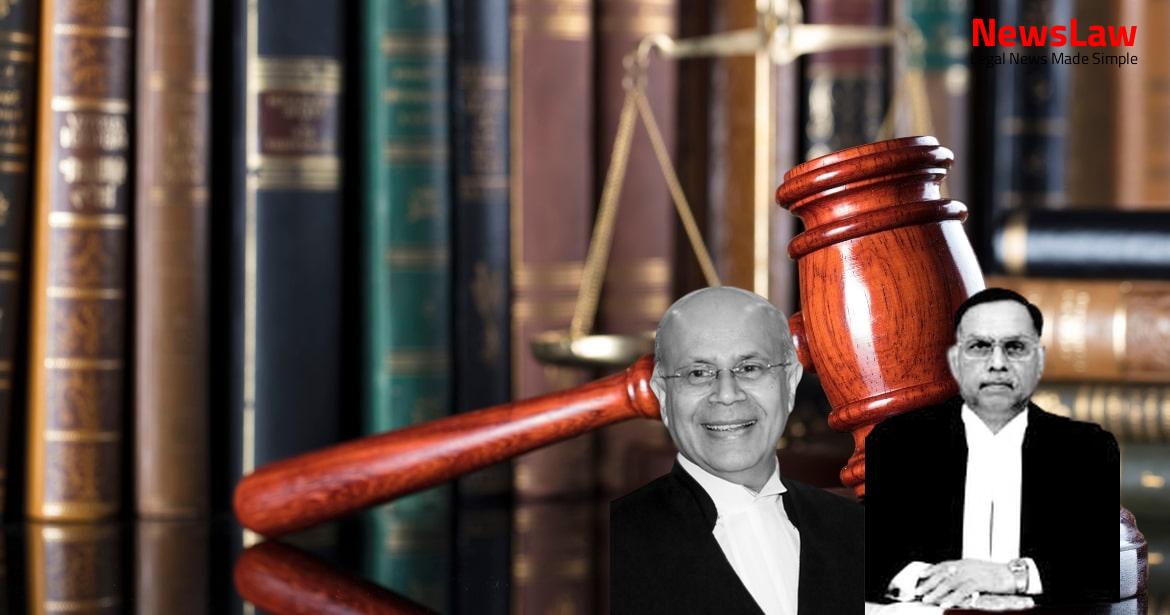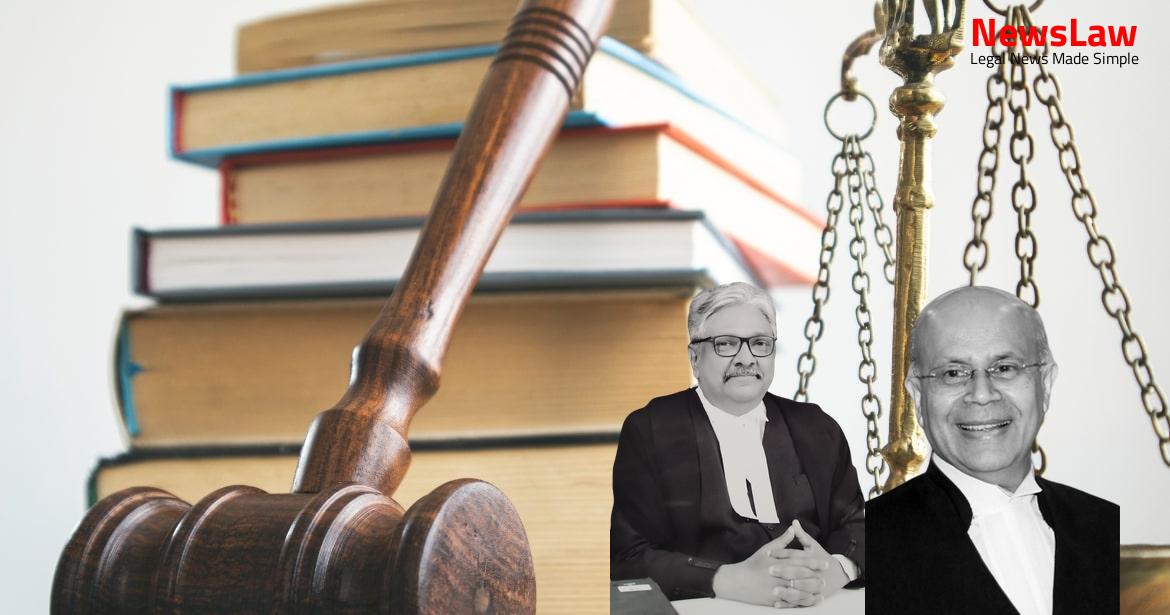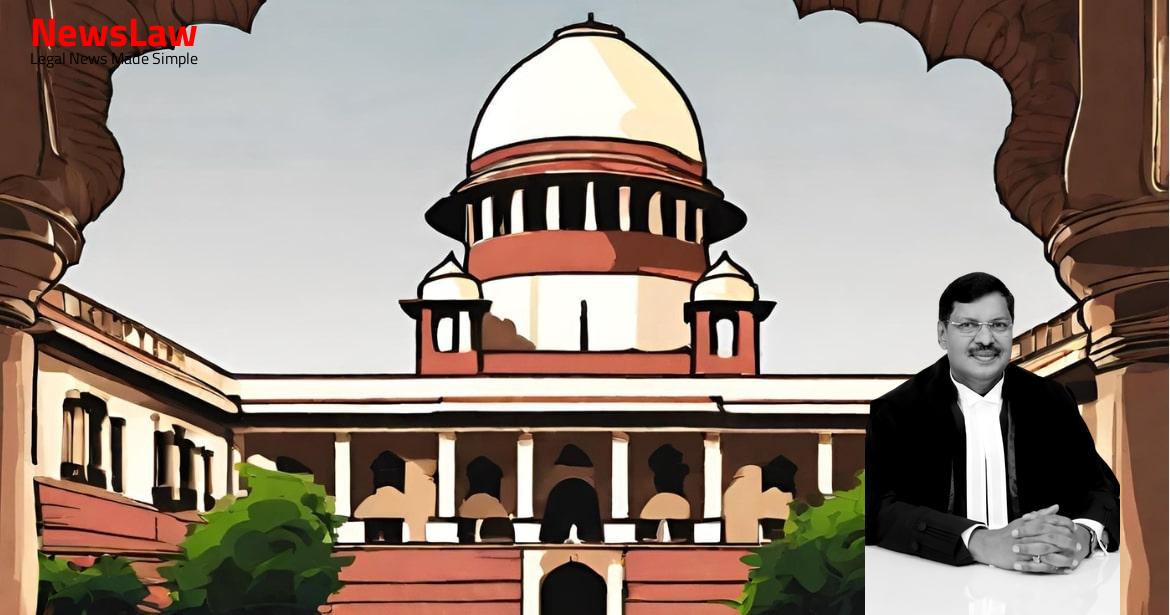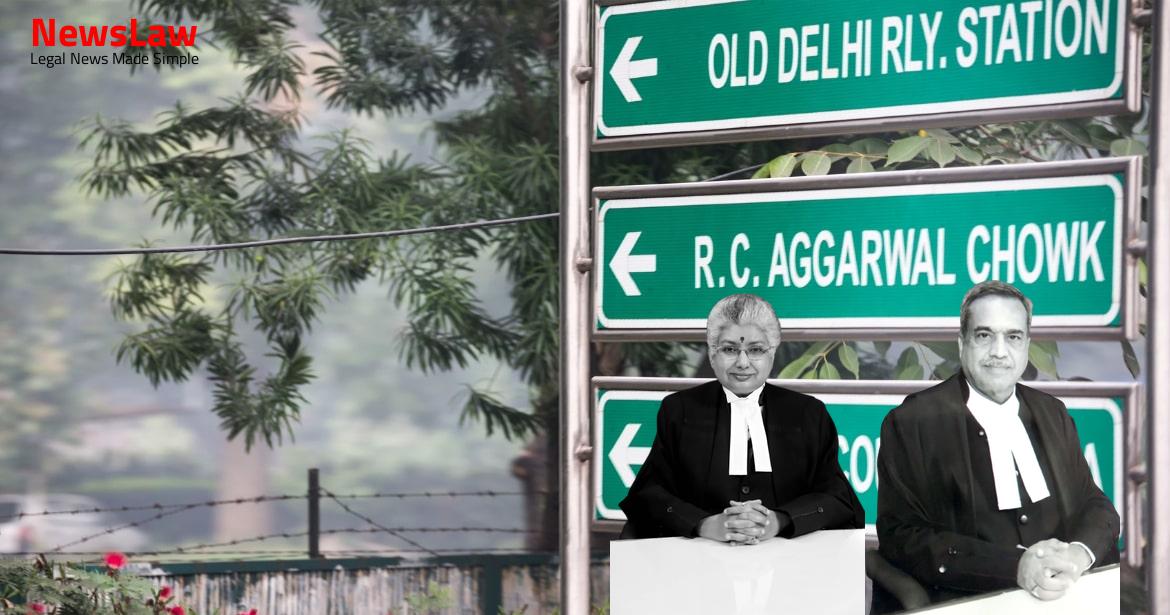A landmark decision by the Supreme Court of India in the case of quashing a criminal complaint filed against M/s. ETI Projects Ltd. by Harshendra Kumar. The Court’s ruling has brought clarity to the legal proceedings surrounding the resignation of Harshendra Kumar as a Director before the issuance of the cheques in question. Stay tuned for more insights into this significant judgment.
Facts
- Appellant’s application under Section 482, Cr.P.C. to quash the summons was dismissed by the High Court.
- The High Court stated that since a previous application for the same relief had been dismissed, the second application was not maintainable.
- The accused person allegedly issued cheques dated 15.02.2001 and 28.02.2001, which were dishonored upon presentation.
- The High Court considered the reliance on Form 32 issued by the Registrar of Companies under the Companies Act, 1956, as proof of resignation by the appellant before the issuance of the cheques.
- The application for dismissal was made on 18.09.2007, noting the resignation plea but rejecting it solely on the grounds of the appellant’s signature on the cheques.
- The appellant claimed resignation from the company on 20.12.2000, accepted by the Board of Directors on 20.01.2001, as a defense without proof.
- The appellant filed a fresh application under Section 482 of the Negotiable Instruments Act after the dismissal.
- The appellant, as the Director of M/s. ETI Projects Ltd., had a complaint filed against him under Section 138 of the Negotiable Instruments Act, to which he sought quashing through Crl.M.P. No. 1459 of 2005.
Also Read: Land Dispute Resolution: Supreme Court Ruling on Specific Performance
Arguments
- Appellant filed a complaint alleging issuance of cheques as Director on 15.02.2001 and 28.02.2001.
- In appellant’s reply to statutory notice, he denied liability due to resignation on 20.01.2001.
- The complaint does not mention the post-dated nature of the cheques.
- Appellant had previously raised and had accepted the objection of resignation in an earlier application under Section 482, Cr.P.C.
Also Read: Landmark Judgment: Setting Precedent for Contractual Compliance
Analysis
- The High Court earlier rejected the quashing application under Section 561A of the CrPC, stating that evidence was yet to be led and interfering was not desirable at that stage.
- The appellant had resigned from the post of Director before the issuance of the cheques, but this fact was not considered in the earlier application and subsequent application.
- The fresh application under Section 482, Cr.P.C. was made after a period of one and a half years with no progress in the criminal case.
- The Form 32 certificate reflecting the appellant’s resignation was not initially considered by the High Court in its earlier order.
- The High Court made a grave error by not considering the uncontroverted documents related to the appellant’s resignation, leading to potential injustice.
- The resignation of the appellant before the cheques were issued highlighted the abuse of process of the court if the criminal complaints were allowed to proceed.
- The High Court was entitled to entertain the subsequent application considering the new evidence of the appellant’s resignation in Form 32.
- Prosecution had failed to make any progress in the criminal case filed in 1965 for over one and a half years.
- Despite the rejection of the earlier application by Harshendra Kumar, the criminal case remained stagnant.
- The subsequent application by Harshendra Kumar was not a repeat application on the same facts and circumstances.
- In the case of Mohan Singh, a successive application under Section 482, Cr.P.C. was deemed maintainable under changed circumstances.
- The second application for quashing of the complaint was deemed maintainable despite the earlier application being dismissed.
- The High Court’s order was overturned as it was found to be incorrect.
- The case was found to be distinguishable based on its unique set of facts and circumstances.
- The Company, in which the appellant served as a Director, is a party respondent in the complaint.
Decision
- Complainant’s interests adequately protected
- Appeal allowed
- Proceedings against the appellant quashed
Case Title: ANIL KHADKIWALA Vs. THE STATE GOVT. OF NCT OF DELHI
Case Number: Crl.A. No.-001157-001157 / 2019



